There are many sources of compulsion in our society. Food. Narcotics. Watching cat videos on the internet. But for Oliver Lee Bateman his addiction is much more noble – he craves the preservation of history.

Oliver Lee Bateman. All photos courtesy of Bateman.
Bateman is your classic overachiever. (This writer, clad in pajama pants and a well-loved Ox Baker t-shirt, mentions this point with a mixture of admiration and only a touch of bitterness!) He wears a multitude of hats. Not only is he a historian but he’s also a journalist, lawyer, strength athlete and works in business operations for a large company. “I always finish stuff,” shared the 38-year-old Bateman with a laugh in a phone interview with SlamWrestling.net. If that wasn’t enough, Bateman also co-hosts a weekly political/cultural podcast called What’s Left? and is a devoted husband and father.
But for pro wrestling fans, Bateman is known for the obituaries he composes for stars of the squared circle past and present for The Ringer.
“I think that one of the keys to a good obituary is just understanding that you’re capturing their life and not putting yourself over with it,” observed Bateman, who currently resides in Pittsburgh. “But you want to capture as much of their life as you can. I think a lot of obituaries, especially if they’re written by friends, or just people that have just kind of followed them generically like, ‘Oh I’ve seen Bill Clinton for 20 years, I’ll just write about him,’ but without really reading anything that he’s written or anything like that. They just kind of are about the writer [rather] than the person who passed away.”
Another key to Bateman’s literary success is preparation. An avid reader of pro wrestling autobiographies and biographies (and you’d be hard pressed to find one he hasn’t read yet!) which for most people is a leisurely activity, but not Bateman. He uses this time to prepare for future articles. He will read the books on his Kindle where he can automatically annotate significant passages, quotations and facts. He also takes note of shoot interviews he has watched of a variety of wrestlers. These notes join his plethora of files just waiting to be utilized.
“The best ‘authorized biography’ I’ve ever read is Jonathan Snowden’s Ken Shamrock book, which I’d also place among the best historical works I’ve ever read,” pointed out Bateman. “As autobiographies go, Hitman Hart’s book is very thorough, the book Ian (Douglass) co-authored with Buggsy McGraw is full of detail and candor, and as far as WWE-branded books go, the William Regal and Superstar (Billy) Graham autobiographies are worth checking out. Other titles I’d recommend fans give a look-through include the ones written by Gary Hart, Stan Hansen, and Don Fargo. I like the Mick Foley, Jim Ross, and Chris Jericho books well enough, but those are all stories I knew before I picked them up. I liked the second Vince Russo memoir Rope Opera, too, though I skipped the evangelical parts.”
Using the recent passing of James “Kamala” Harris on August 9, 2020, Bateman is able to explain the step by step process he goes through in writing a pro wrestling obituary for The Ringer. He first confirms with his editor, David Shoemaker, that he is assigned to the obituary. He then consults his files he’s amassed. In this case, he had already read Kamala’s autobiography, Kamala Speaks written with Kenny Casanova, and previously jotted down what he would like to say about Kamala if he ever had the opportunity to write about him.
“As somebody with a background in historical research and really, really does this stuff, I think that’s where I shine in these articles,” reflected Bateman. “That’s why the detail keeps getting better and better (the more pro wrestling obituaries he writes). I just don’t miss anything and I prepare in advance.”
The next step for Bateman is to write the opening paragraph and sometimes the closing paragraph too. It’s then time to begin “filling in the middle.” This is also the stage where Bateman goes beyond the basic facts of a wrestler’s life by pondering and connecting the underlying themes he wants to highlight in the life of the deceased. For Harris these themes included the racial overtones in his pro wrestling character of “The Ugandan Giant” Kamala, which it turns out wasn’t nearly as offensive to Harris as the discrepancies in pay, working conditions and overall treatment he often discussed in relation to his peers, especially his white peers.
Bateman wrote in Harris’ obituary: “Kamala, who has always been forthcoming about finances in a sport in which many past stars tend to exaggerate their earnings, noted how unfair the structure was. At his peak, he would get $5,000 for wrestling (Hulk) Hogan in Madison Square Garden, $4,000 for doing the same in Philadelphia, $2,500 in DC, and then $200 or $300 a night on other evenings for defeating enhancement wrestlers. But once Hogan moved out of the picture, those major paydays dwindled, and he was earning $2,500 a week, then $1,500. The WWE traveled a lot in those days, and expenses were on him, so at $1,500 he was close to losing money. By the end, he wrote, ‘I started sleeping in the rental car just to save money.’ He didn’t wrestle at one of the first three WrestleMania events, but did receive a tiny ‘standby’ payment for waiting in the back at WrestleMania III, the most lucrative gate in the company’s history.”
Bateman continued later in the obituary: “The highlight of Kamala’s 1992 run was a big SummerSlam pay-per-view match at Wembley Stadium in London against The Undertaker, a three-minute disqualification loss that served as the second-to-last match on the card. Kamala reported being paid $13,000 for this event, which grossed tens of millions. The Undertaker, he learned from Steve Lombardi, had apparently received half a million dollars. ‘Being a Black man that grew up when I did, maybe I look at the world differently,’ he wrote. ‘My mind kept going back to the ‘men are equal, but some men are more equal than others’ mindset.’ Was it, he asked after evaluating other reasons like merchandise sales and not playing politics, ‘because I was Black?’ He also thought about how, to the best of his recollection during all of his stints in the WWE, the company would buy occasional first-class plane tickets for white wrestlers but never for him, despite his height and ample girth.”
Bateman also seeks secondary sources to add perspective to the obituaries he’s writing. He admitted that he usually conducts these interviews at night when his infant daughter is asleep, so as to work undisturbed. Bateman is quick to point out that he’s “not a fan of expected stories.” So, when either Arn Anderson or Sid Vicious passes away, he will not be including their infamous scissor altercation in their respective obituaries. “[Their altercation] doesn’t mean much to me,” he simply stated. For Harris’ obituary, Bateman interviewed Koko B. Ware and B. Brian Blair. He recalled being struck by how distraught Ware was in the aftermath of his friend’s death.
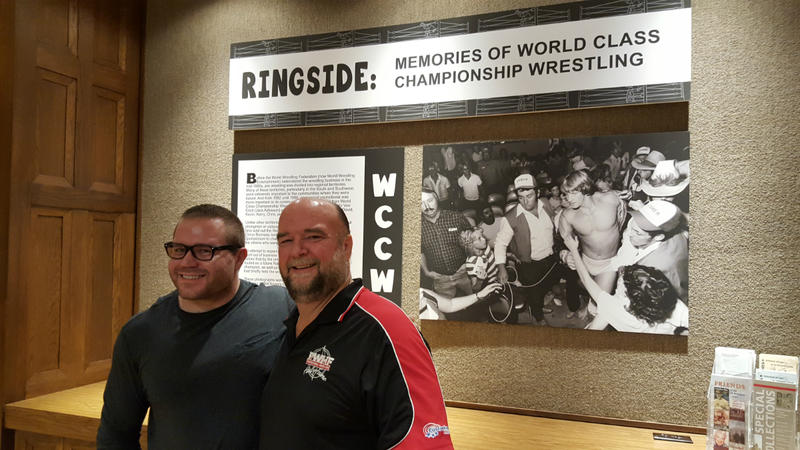
Bateman with “Cowboy” Johnny Mantell at the Ringside: Memories of World Class Championship Wrestling photo exhibit at the University of Texas in Arlington in 2015. Ever the historian, Bateman curated the exhibit after a librarian told him about “the cache of negatives” in the archives, which were taken in the 1980s by photographer Cirrus Bonneau.
“I just calmly asked him (Ware) what he would like to get out there that would be remembered (about Harris),” shared Bateman. “What were the key things about James Harris that he would like to have remembered or that really hung with him. And just being really sincere about it, because I am. And for him it was just about being loyal and a good friend and being a tough guy if threatened and always being concerned about the business.”
Ware also shared the exclusive, yet heartwrenching detail of losing a loved one during the current COVID-19 outbreak. Bateman wrote: “Kamala’s end, Koko B. Ware tells me, occurred amid the isolating conditions mandated by hospitals during the COVID-19 pandemic. ‘He had a sick spell come on, and his wife took him to the emergency room, and then she was separated from him, talking to the doctor just through a cell phone. That kind of thing worries the devil out of you. She’s out in the lobby, waiting for hours, and then she thinks she’s just going to call James. But the doctor calls her, and says they’ve done all they can do. There’s a lot more to it than that, but that’s heartbreaking, how that happened.’”
For Bateman, the goal is to get the obituary out as soon as possible which often means he’s pulling all-nighters once the news hits that a wrestler has died. “Hopefully I’ve gotten some sleep the day before,” he joked. But the lack of sleep is worth it in his quest to preserve legacies.
“I certainly hope that (the obituaries) help fans number one heal,” commented Bateman, who also admires the obituary writing of Slam’s own Greg Oliver, Dave Meltzer, Mike Mooneyham and of course, Shoemaker, because he says they take the history of pro wrestling so seriously. “But number two, if they’re not going to really ever learn about the wrestler anywhere else, I think about it that way. I really like them to learn about it there and not just read like a 500-word thing. Because that’s all sometimes you get.”
When you specialize in pro wrestling obituaries, one has to wonder if Bateman is ever razzed about the subject matter from friends and family or accused of being morbid. For Bateman, he views his obituary writing as “a good outlet” to deal with death. He also has the mentality that rather than fearing death, it should be looked at as “a part of life,” a viewpoint he credits to his “decidedly non-traditional father.” Bateman says his father was older when he was born, so death was a familiar subject growing up. His father was even known for zingers like, “Oh you’re halfway there,” during someone’s birthday and almost every night before bed, he would tell Bateman, “There are two bad things that can happen at night: you can either wake up or you don’t!”
“Everybody was on the way out in his (his father’s) mind,” concluded Bateman. “And he was pretty much always summing up his life.”
He added, “I almost got like a vaccine against being morbid from how morbid my dad was.”
When Bateman isn’t writing obituaries, he also likes to explore the physicality of pro wrestling and body types in wrestling which hearkens to his experience as a strength athlete and amateur wrestler. He revealed that most of his family members were union workers so he’s always been interested in work and workers, thus the treatment of wrestlers and their working conditions intrigue him, especially with pro wrestling being a deregulated industry.
But his first love will always be history and Bateman adamantly encourages pro wrestling fans/readers to actively embrace their own inner historians.
“Here’s this person’s life,” he articulated. “Here’s my interpretation of it and you can take charge of it too. You can take charge of your own story. Think about your own story and how it fits together. Everybody’s life fits together in one way or another. It doesn’t have to just be a bunch of random things. You can give meaning and purpose to life by interpreting it and by thinking about it. I hope if people step back and look at it, it’s not just like, ‘Oh that was a lot of cool facts about him.’ It was more like ‘Huh, that really resonates with me!’”
Oliver Lee Bateman will be interviewed by Ian Douglass on the Wrestling Bookmarks Live! weekly show on August 20, 2020 streaming live in its Facebook group.
RELATED LINKS:
- Slam’s Kamala obituary
- Oliver Lee Bateman: website and Twitter
- Bateman’s Kamala obituary for The Ringer
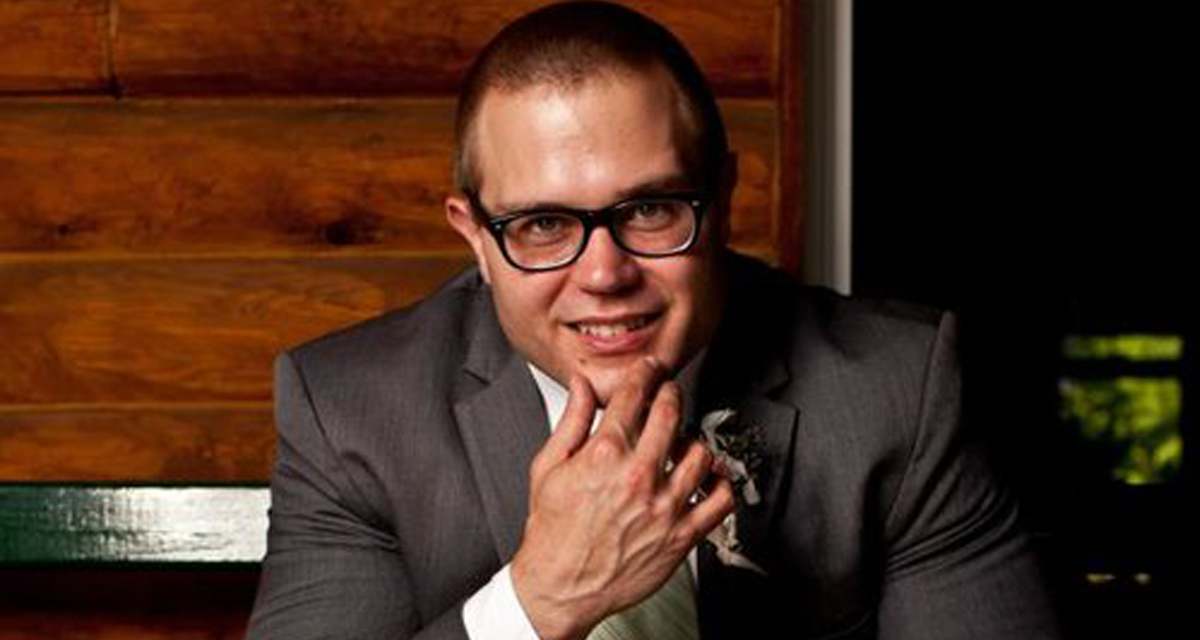
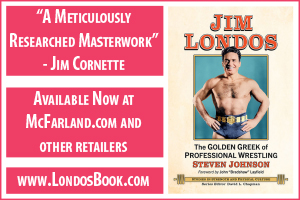

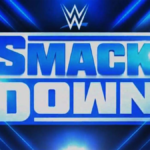





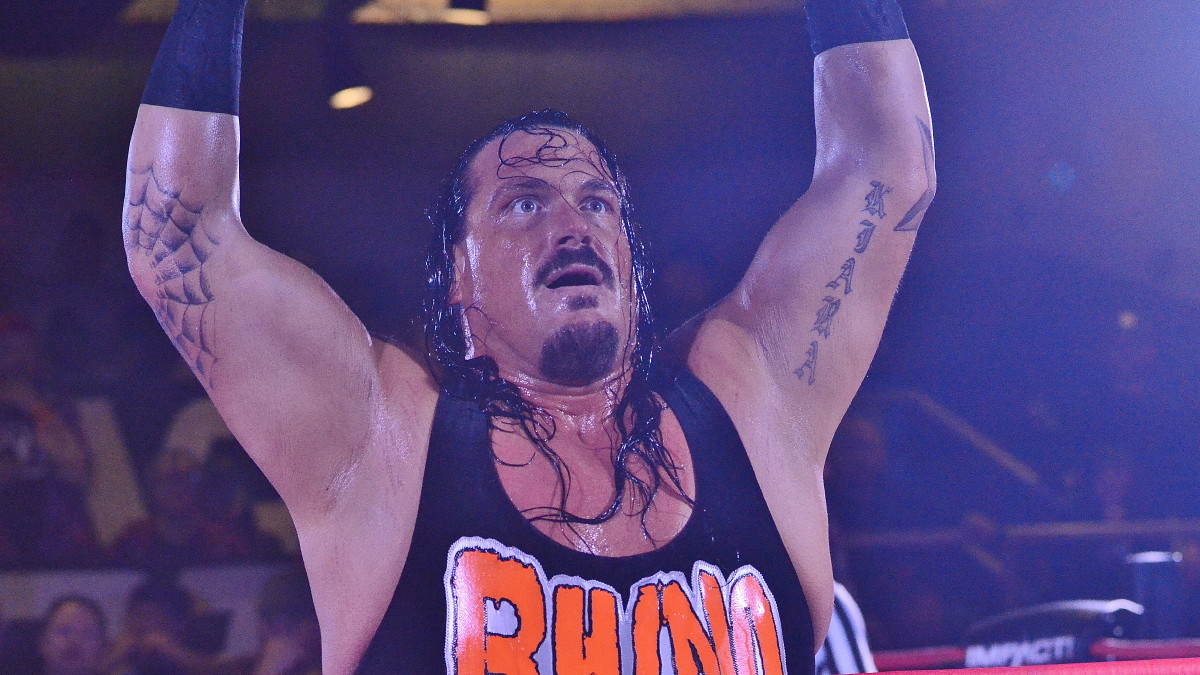



Having written a few obituaries (as, sadly, we have to do too frequently when covering wrestling), I can attest that it’s not an easy task. I’ve read some of the ones that Oliver has written, and they are both respectful and informative, which is a hard balance to strike.
I’d put our very own Greg Oliver’s among the very best as well.
Bateman actually looks up to the obituary stylings of Greg!